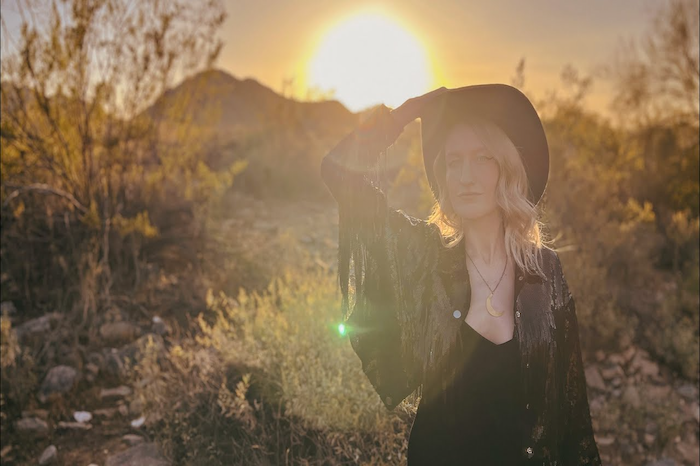Iris Marlowe’s musical journey from a small Illinois town to the heart of Chicago’s vibrant music scene reflects a unique fusion of influences. Raised on Johnny Cash and Sonny James, alongside admiration for pop icons like Gwen Stefani and Beyonce, Marlowe’s sound defies traditional labels, straddling the realms of country and pop.
For Marlowe, music isn’t just about genre—it’s about audience. Describing her artistic vision as catering to “alternative gothic gays,” she paints her music with a distinctive flair she humorously describes as “if Stephen King wrote country music.”
“My music explores themes of queer identity within the classic country framework,” Marlowe explains. “It’s about representation and embracing narratives that resonate with the LGBTQ+ community.”
Chicago has become a focal point for a burgeoning queer country movement, featuring acts like Marlowe, Andrew Sa, and the #QueerCountry Bandwagon. Northwestern University journalism professor Richelle Gordon, a member of #QueerCountry Bandwagon, underscores Chicago’s role in reshaping country music’s narrative.
“Country music is about authenticity and inclusivity,” Gordon asserts. “Chicago, historically overshadowed by Nashville, is reclaiming its place in country music history.”
The city’s embrace of diversity is evident in events like Swappin’ Boots, a popular two-step night for Chicago’s LGBTQ+ community hosted by Queer Social Club. Founder Alexis Stein emphasizes the event’s role in creating welcoming spaces.
“It’s about making music accessible and celebrating our identities,” Stein says. “Swappin’ Boots is more than a dance night; it’s a testament to Chicago’s vibrant queer culture.”
As Marlowe and others continue to challenge stereotypes and expand the boundaries of country music, Chicago stands as a beacon of inclusivity in a genre traditionally defined by its roots and rules.

